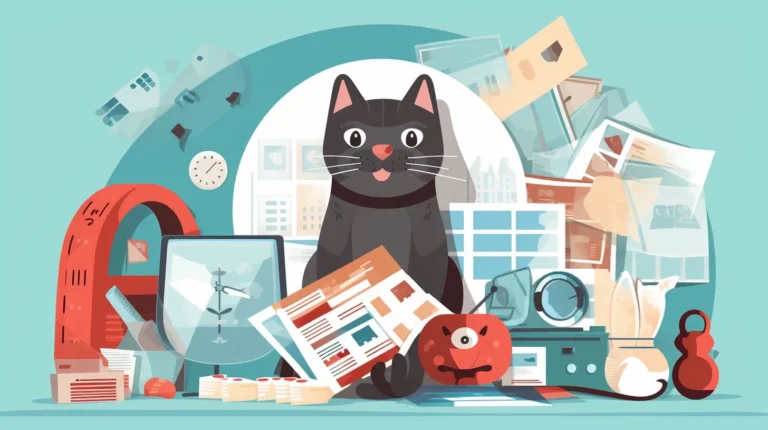Big City Living: How To Save Money

Living the big city life is undoubtedly thrilling. Yet, like a rollercoaster ride, it comes with its ups and downs – particularly when it comes to finances. I mean, did you know that 35 out of America’s 50 most populous cities are wrestling with budget deficits? And if these metropolises have financial challenges, imagine what it’s like for us inhabitants! But fear not! In this article, I’ll be your urban finance guru.
Let me share tested strategies and personal anecdotes on how we can set practical money goals, cut down those pesky expenses and make our grand city life more pocket-friendly. So buckle up; our journey towards financial liberty starts now!
Key Takeaways
- Living in a big city can be expensive, but there are ways to save money and still enjoy urban life.
- Setting SMART money goals and creating a budget is important for managing expenses and saving money.
- Utilizing public transportation or walking/biking instead of owning a car can help cut down on transportation costs.
- Adopting a modest lifestyle, such as finding affordable housing options and participating in free city activities, can contribute to saving money in the city.
The Challenge of Living Comfortably in a Big City

Big cities can feel like money pits. They have a high cost of living. It is not easy to live here without a big salary. A study showed that Virginia Beach was the city where living costs less.
In Miami, it’s really hard to make ends meet with an average paycheck.
Watching your budget in a big city like New York or Los Angeles is key. But, saving money needs both guile and creativity. Lowering spending helps to balance savings and daily needs too.
Setting Financial Goals in a Big City
Setting financial goals is crucial when living in a big city to ensure that you are able to manage your expenses and save money.
SMART Money Goals
Living in a big city needs smart money goals. The SMART system makes you set aims that are specific, measurable, achievable, relevant and time-bound. It means you know what to do, how much it will cost or save you, if it’s possible to do now or later, why it matters to your life and when it should be done by.
For example, let’s say we set a goal to create an emergency fund of $1,000. This is specific (you know the exact amount), measurable (you can track your progress), achievable (it can be done with careful budgeting), relevant (having an emergency fund is important for financial stability) and time-bound (let’s aim for six months).
Setting SMART money goals could help anyone live well in a big city like New York City or Chicago.
Budgeting Strategies
Getting the most out of city life means being smart with money. Here are some budgeting methods:
- Use the 50-30-20 way of budgeting. This means splitting your cash into three parts. Half goes to things you must pay for, like rent and food. About 30% is for fun stuff, like going out to eat. Put the last 20% into a saving account.
- Keep track of where your cash goes. Write down every time you spend money.
- Try not to buy anything for a week once in a while.
- Stop or cut down costs that happen over and over again, such as cable TV.
- Make paying off debt a big goal.
- Use apps like Allio or USAA’s app to help manage your money better.
- Set up your bank account so some money goes straight into savings each month.
- Have an emergency fund just in case something unexpected happens.
Effective Ways to Cut the Cost of City Living

Evaluate your housing expenses, rethink vehicle ownership, maximize free city activities, and adopt a more modest lifestyle.
Evaluating Housing Expenses
Living in a big city often means high rent costs. I’ve seen it firsthand in places like Miami where the budget deficit for housing expenses was $46,199. The same is true for other cities too! San Francisco saw a shortage of $41,192 while New York had one of $34,709.
Even Los Angeles and Boston faced hard times with deficits of $24,689 and $29,937 respectively. This might seem scary at first but don’t panic! It’s important to pick an apartment that you can afford to keep your budget under control.
You could possibly share with a roommate or live outside the city center where rents are usually less pricey. Every dollar saved on housing goes straight into your savings account or towards other needs like food and transportation costs!
Rethinking Vehicle Ownership
If you live in a big city, owning a car can be expensive. Instead of relying on a car, there are other ways to get around that can save you money. One option is utilizing public transportation.
Many cities have extensive bus and subway systems that are more affordable than owning and maintaining a car. Another option is walking or biking if your destination is nearby. This not only saves money but also helps you stay active and reduces your carbon footprint.
Additionally, consider getting a roommate or multiple roommates to share the costs of vehicle ownership, including gas and parking fees. Cooking at home instead of dining out or participating in supper clubs can also help reduce the need for using your car and cut down on transportation expenses.
Maximizing Free City Activities
Big cities offer a lot of free activities that can help save money. You can enjoy parks, beaches, and free movie screenings without spending anything. By taking advantage of these opportunities, you can cut the cost of city living.
Instead of paying for expensive entertainment options, you can participate in volunteer events or attend live performances that are often offered for free in big cities. So, make the most out of what your city has to offer and save some money along the way!
Adopting a Modest Lifestyle
Living in a big city can be expensive, but adopting a modest lifestyle can help you save money. Instead of constantly chasing the latest trends or indulging in extravagant purchases, focus on living below your means.
Look for affordable housing options in suburban neighborhoods or consider having roommates to split the rent. Cut down on transportation costs by utilizing public transportation or walking and biking whenever possible.
When it comes to food and entertainment, opt for picnics in public spaces instead of expensive restaurants and bars. Take advantage of free activities and events in the city, such as movie screenings or volunteering opportunities.
Transportation in the City
 Utilize public transportation or consider walking or biking to save money on transportation costs.
Utilize public transportation or consider walking or biking to save money on transportation costs.
Utilizing Public Transportation
Public transportation in big cities is a more affordable alternative to owning a car. It can help save money on transportation expenses. Here are some ways to utilize public transportation and save money:
- Take the bus or subway: Use the city’s public transit system instead of driving a car. Bus and subway fares are usually cheaper than the cost of fuel, parking, and maintenance.
- Get a monthly pass: Many cities offer discounted monthly passes for unlimited rides on public transportation. These passes can save you money if you use public transit frequently.
- Use apps for route planning: There are many smartphone apps available that provide real-time information about bus and train schedules, routes, and delays. Using these apps can help you plan your trips more efficiently and avoid unnecessary wait times.
- Carpool with others: If you need to travel with others, consider carpooling or ride-sharing services like UberPOOL or Lyft Line. This way, you can split the cost of transportation and reduce your expenses.
- Walk or bike short distances: Instead of relying solely on public transportation, try walking or biking for short distances within your city. It not only saves money but also provides health benefits.
Walking or Biking
Walking or biking can be great ways to save money in a big city. Not only are they affordable modes of transportation, but they also provide opportunities for exercise and exploration. Here are some benefits of walking or biking in the city:
- Get exercise: Walking or biking allows you to get physical activity without needing a gym membership. It’s a convenient way to incorporate exercise into your daily routine.
- Save on transportation costs: Walking or biking doesn’t require any money for fuel or public transportation fares. You can use the saved money for other expenses or savings.
- Avoid traffic and parking hassles: In many big cities, traffic congestion and high parking rates are common issues. By walking or biking, you can avoid these frustrations and potentially save time as well.
- Discover new places: When you walk or bike through the city streets, you have the chance to stumble upon hidden gems, local businesses, and beautiful scenery that you might miss if you’re always inside a car or using public transport.
- Meet new people: Walking or biking can be a social experience too. You might run into neighbors, fellow cyclists, or just strike up conversations with strangers along the way.
Food and Entertainment

When it comes to saving money on food and entertainment in a big city, there are several strategies you can employ.
Doing Picnics in Public Spaces
Picnics are a great way to enjoy the city without spending a lot of money. You can find public spaces like parks, beaches, and even rooftops where you can spread out a blanket and have a delicious meal.
It’s an opportunity to soak in the sunshine, have some quality time with friends or family, and enjoy the beautiful surroundings. Plus, it’s much cheaper than going to a restaurant! So grab some sandwiches or snacks, pack them up in your bag, and head out for a lovely picnic in one of the many public spaces that your city has to offer.
Being Aware of Restaurant and Bar Deals
Living in a big city doesn’t mean you have to miss out on enjoying restaurants and bars. By being savvy and aware of deals, you can still treat yourself while saving money. Many establishments offer happy hours or special discounts during specific times of the day or week.
Keep an eye out for these deals and plan your outings accordingly. You can also sign up for newsletters or follow social media pages of your favorite restaurants and bars to stay updated on any promotions or limited-time offers they may have.
Additionally, some cities have apps that provide information about happy hours and discounted meals at various locations, making it even easier to find good deals. So don’t forget to do your research before heading out for a night on the town!
Hosting House Parties Instead of Going Out
Hosting house parties instead of going out can be a smart way to save money in big cities. By cooking at home and participating in supper clubs, you can reduce food expenses while still enjoying socializing and entertaining.
House parties offer a more affordable alternative to expensive bars and restaurants, allowing you to have fun without breaking the bank. In big cities with high costs of living, hosting house parties is a budget-friendly option that allows residents to enjoy themselves without overspending.
Smart Shopping Habits

When it comes to shopping in a big city, there are several smart habits you can adopt to save money and make the most of your budget.
Shopping Online
Shopping online is a great way to save money when living in a big city. It allows you to compare prices easily and find the best deals without having to spend time and money traveling to different stores.
Plus, many online retailers offer discounts and promotions that you may not find in physical stores. Additionally, shopping online gives you the convenience of having items delivered right to your doorstep, saving you time and effort.
Just be sure to only buy what you need and resist impulse purchases, as it can be easy to get carried away with online shopping.
Buying in Bulk
Buying in bulk is a smart shopping habit that can help you save money when living in a big city. By purchasing items in larger quantities, you can often get them at a lower price per unit.
This can be especially beneficial for non-perishable items like toilet paper, cleaning supplies, or pantry staples. However, it’s important to only buy what you need and have enough storage space to accommodate the bulk purchases.
Additionally, compare prices and consider joining a warehouse club or shopping online for better deals on bulk items. Overall, buying in bulk can be an effective way to stretch your budget and save money while living in a big city.
Investing in Wardrobe Staples, not Trends
When it comes to saving money in a big city, one area where you can make a smart choice is in your wardrobe. Instead of spending money on trendy clothing items that may go out of style quickly, focus on investing in wardrobe staples.
These are timeless pieces that can be mixed and matched to create multiple outfits. By choosing quality staples like a classic blazer, little black dress, or well-fitting jeans, you can build a versatile wardrobe without constantly buying new clothes.
This not only saves you money but also helps reduce waste and promote sustainability. With these staples in your closet, you’ll always have something stylish to wear for any occasion without breaking the bank.
Can the Investment Strategies also Help in Saving Money for Big City Living?
Investment strategies to save money can indeed be beneficial for individuals living in big cities. By diversifying their investments and focusing on long-term growth, urban residents can grow their wealth and generate additional income streams. Additionally, strategic investment decisions can help cover expensive living costs, such as rent or mortgage payments, allowing individuals to save more in the process.
Conclusion
Living in a big city can be expensive, but with some smart strategies and a little creativity, you can save money and still enjoy all that urban life has to offer. Start by setting SMART money goals and creating a budget.
Evaluate your housing expenses and consider getting roommates or negotiating rent. Use public transportation or walk/bike instead of owning a car. Cook at home, look for restaurant deals, and host house parties instead of going out.
Shop smart by buying online or in bulk and investing in staple items. With these tips, you can live comfortably in the city without breaking the bank!






